The importance of the fight against poverty and social exclusion in transforming lives
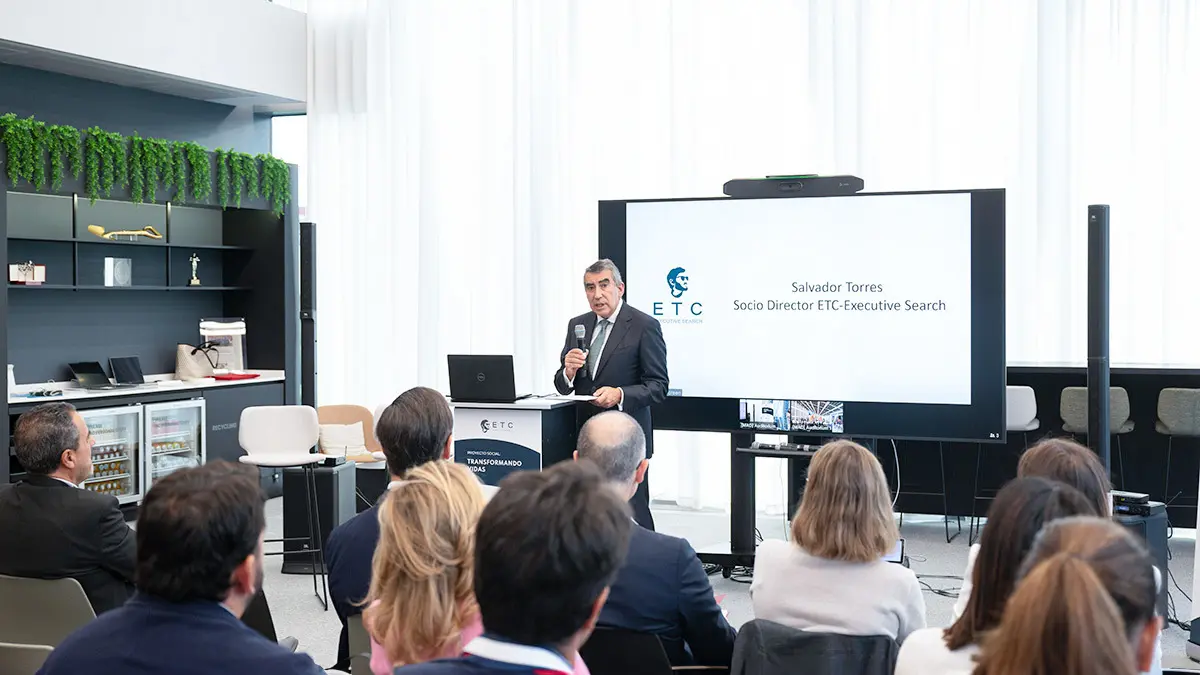
The auditorium of the technology company Celonis in Madrid hosted the event ‘Transforming lives’ to present the projects of five important NGOs working to improve the situation of hundreds of thousands of needy people suffering from poverty, hunger, lack of educational opportunities and social exclusion in Spain and other parts of the world.
The journalist Nieves Herrero and the doctor and lecturer Mario Alonso Puig acted as masters of ceremonies to present the protagonists of the meeting and several of the projects of Cáritas, the Spanish Federation of Food Banks (FESBAL), Manos Unidas, Mensajeros de la Paz and Entreculturas aimed at helping those most in need.
The event was organised by ETC-Executive Search, a platform dedicated to helping the most vulnerable, and served to present initiatives presented by the heads of these NGOs to the most relevant companies in the country, seeking to generate an important link between the business sector and social initiatives in order to eradicate poverty, hunger, lack of educational opportunities and exclusion in Spain and other parts of the world.
The wealth of a society is measured by how it treats the most vulnerable and we must build a tomorrow without poverty, this was one of the main messages launched during the meeting. A task in which NGOs such as Caritas, the Spanish Federation of Food Banks (FESBAL), Manos Unidas, Mensajeros de la Paz and Entreculturas are fully immersed.
In a brief introduction, Fernando Arranz, vice-president for Iberia and LATAM of Celonis, presented the activity of his company as host of the event: it is a technological multinational that develops software dedicated to the activity of process mining in order to favour processes to improve the efficiency of companies and workers and also to protect the planet.
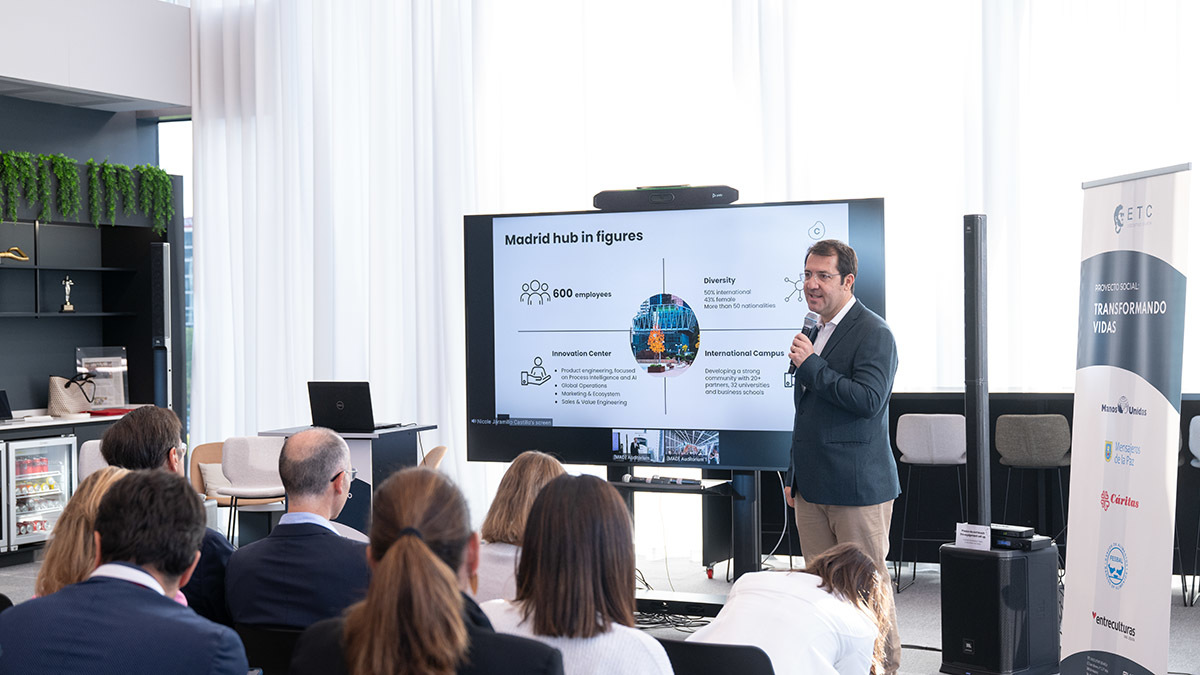
Salvador Torres, managing partner and founder of ETC-Executive Search, addressed the central issue of the meeting, which was to bring together five large NGOs that ‘give so much for the poor and to fight against vulnerability’ with important representatives of the business sector in Spain.
The aim here is a commitment to social responsibility and to help those who need it most. In terms of the fight against poverty and vulnerability, the work of these NGOs ‘is a beacon that shines a light on the forgotten in society, a beacon that illuminates and reaches out with a welcoming, listening or nourishing hand’, according to Salvador Torres, who alluded to the ‘unwavering commitment to help others’ in order to ‘contribute to a fairer world with a profoundly social perspective’. The managing partner and founder of ETC highlighted the fact that almost 27% of the population in Spain is in poverty or at risk of social exclusion, which makes the action of these NGOs in Spain necessary.
For Salvador Torres, it is necessary to collaborate more effectively and transform society; to help with projects, promote the culture of effort and volunteering, exchange experiences and make the work of these NGOs more visible. The aim is to create bridges between companies and NGOs with joint projects and to draw society's attention to ‘show that we all have something to do’.
Up to 30 companies were involved in this event aimed at Human Resources Departments, CEOs of these companies and Corporate Social Responsibility departments where appropriate.
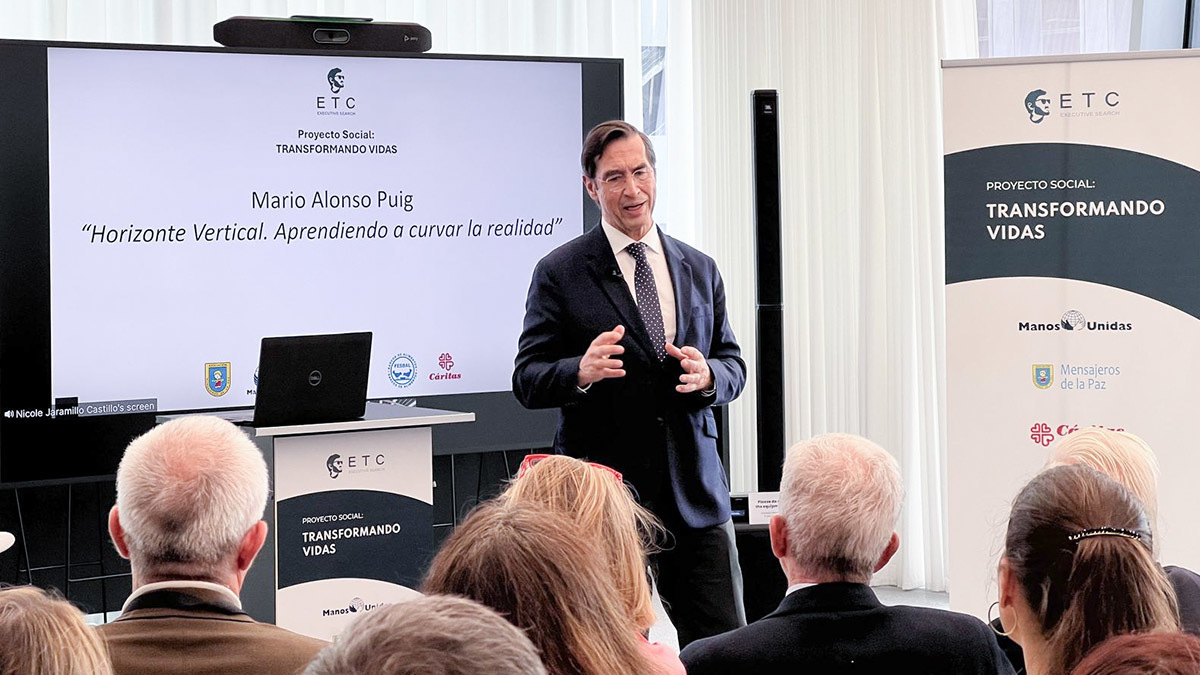
In his turn, the priest, theologian, writer and sociologist José María Rodríguez Olaizola gave his personal vision of the fight against poverty and social exclusion, focusing his speech on what he called ‘the social gaze’.
The priest explained that the gaze is not neutral and that there are many inequalities and contrasts between the poor world and the less poor or rich. ‘It is a wounded world and we shudder at the wounds’, said José María Rodríguez Olaizola, who appealed to help heal this wounded world, for which convictions are needed, a deep motivation to act in a certain way, which comes through education and socialisation, provided by the world and its reality; an area where precisely the social gaze comes into action.
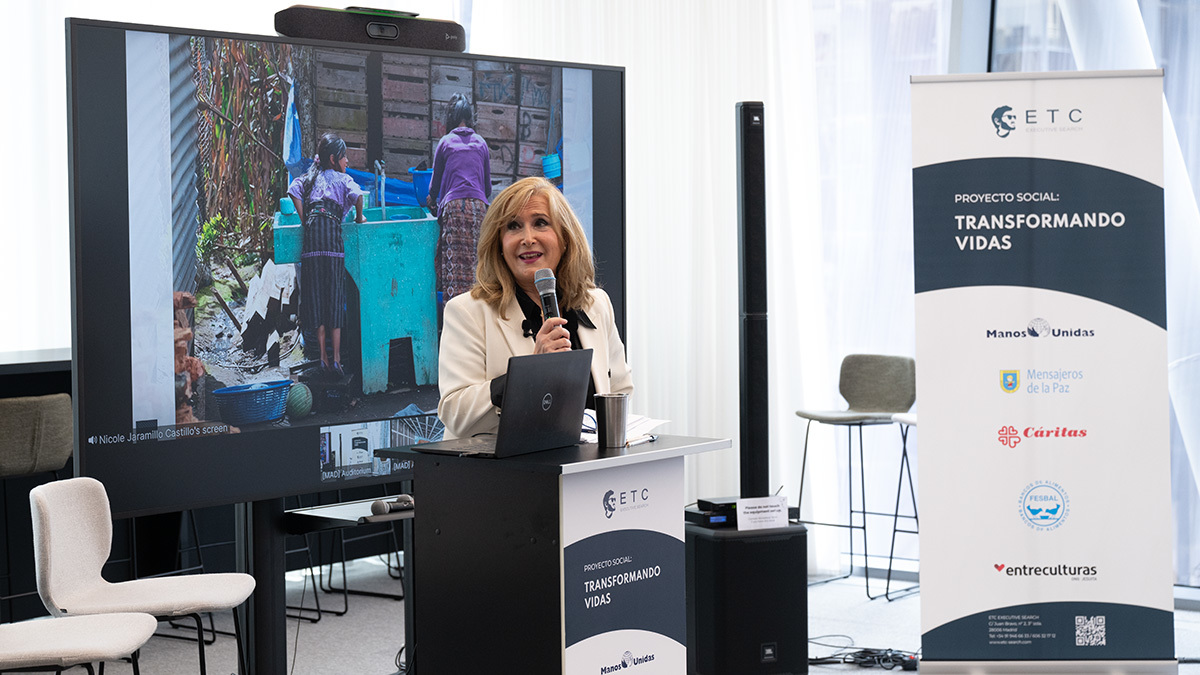
‘What we can see makes us happy or devastates us; in order to have the convictions to heal this world, in addition to education, we must learn to look at this world, removing the filters that prevent us from entering this world’, said the priest and theologian, who differentiated between the ’spectator's gaze’, of those who see things, but without getting involved on the ground, and the ’witness's gaze’, of those who make a committed effort to inform themselves beyond the media and networks and embrace a cause to help, reducing distances and physically approaching the place where there is suffering and poverty.
José María Rodríguez Olaizola indicated that ‘one must feel involved through faith, justice or basic dignity’, ‘seeking personal wealth by helping because it is sad to settle for mediocrity’. The sociologist also stressed the importance of ‘resistance in trying to change something’ and that ‘there are vulnerable people who need someone to defend them, someone who has a voice because, otherwise, they would only be left with silence’.
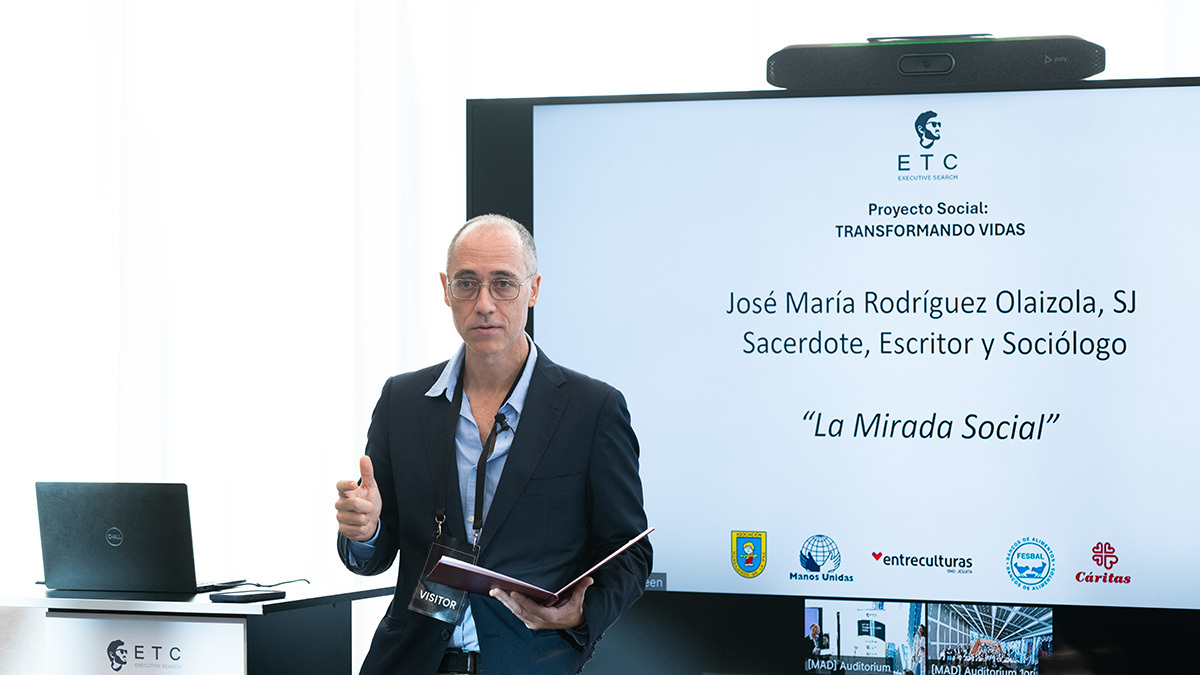
NGO projects
Various NGOs presented their aid projects and what they consist of in order to convince important companies to collaborate with donations and help this activity that favours the poor and socially excluded.
Cáritas presented its projects ‘Acompáñame al éxito’, ‘Moda Re-’ and ‘RI UTZALAJ K'ASLEMAL, Vida Digna en Guatemala’, FESBAL provided information on its projects ‘Ningún colectivo sin alimentos’, ‘Grandes recogidas’ and ‘Plan B’, Manos Unidas presented the projects ‘Cambodia’, ‘Zambia’ and ‘Mexico’, ‘Mensajeros de la Paz presented its projects ‘Centro Social Catedral Justo Mensajeros de la Paz’, ‘Restaurante Solidario Robin Hood’ and ‘Ayudando a la infancia en Honduras’ and Entreculturas presented its initiatives ‘Educar es incluir’, ‘Soy cometa’ and ‘La luz de las niñas’.
In his turn, José Manuel Bretón, president of Cáritas España, an organisation that has 85,000 volunteers, 5,000 workers and 70 Diocesan Caritas organisations in its social action, explained that his NGO supports people in precarious situations and exclusion.
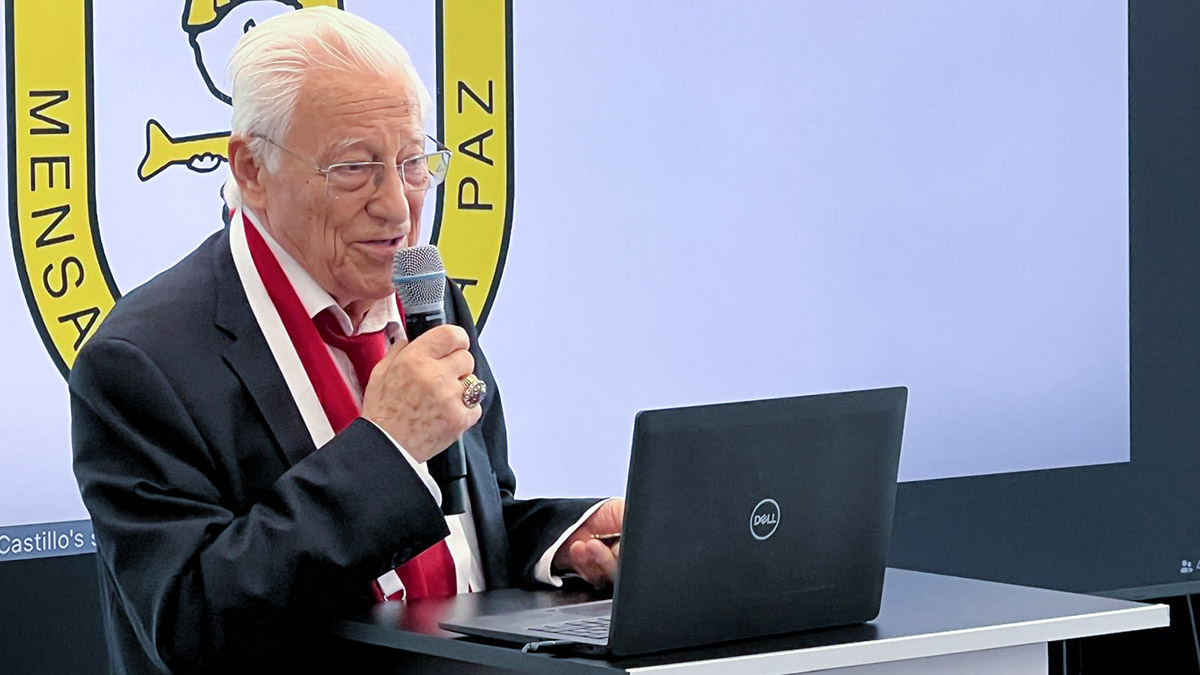
It is an organisation that has to do with the Church and many entities donate money and propose more effective initiatives to improve the conditions of the people who suffer most. José Manuel Bretón pointed out the importance of cooperation between companies and social action organisations: ‘Executives know the important role of companies in eradicating poverty and doing it from a social organisation is more effective and transformative’.
Cáritas promotes a more caring society and develops projects of all kinds, more than 1,500 in Spain, and with Cáritas International there is a presence in more than 170 countries.
Meanwhile, Nieves Herrero highlighted the work of these ‘people committed to what is happening around them’ and said she was ‘proud’ of this society, which is the one that really interests her. All of this ‘means that we have to move, you can't just sit back and do nothing, we have to do something positive’, she said.
For his part, Ramón Almansa, Executive Director of Entreculturas, spoke about the activities of his organisation, which promotes education and integration in Spain and in different regions of the world. An NGO that has to do with the Society of Jesus, which promotes education and equality for all.
‘Education is the lever for many children to have a dignified life’, said Ramón Almansa, who also added that ‘schools transform lives and societies‘, praising ‘the power of the school as a space for peace‘.
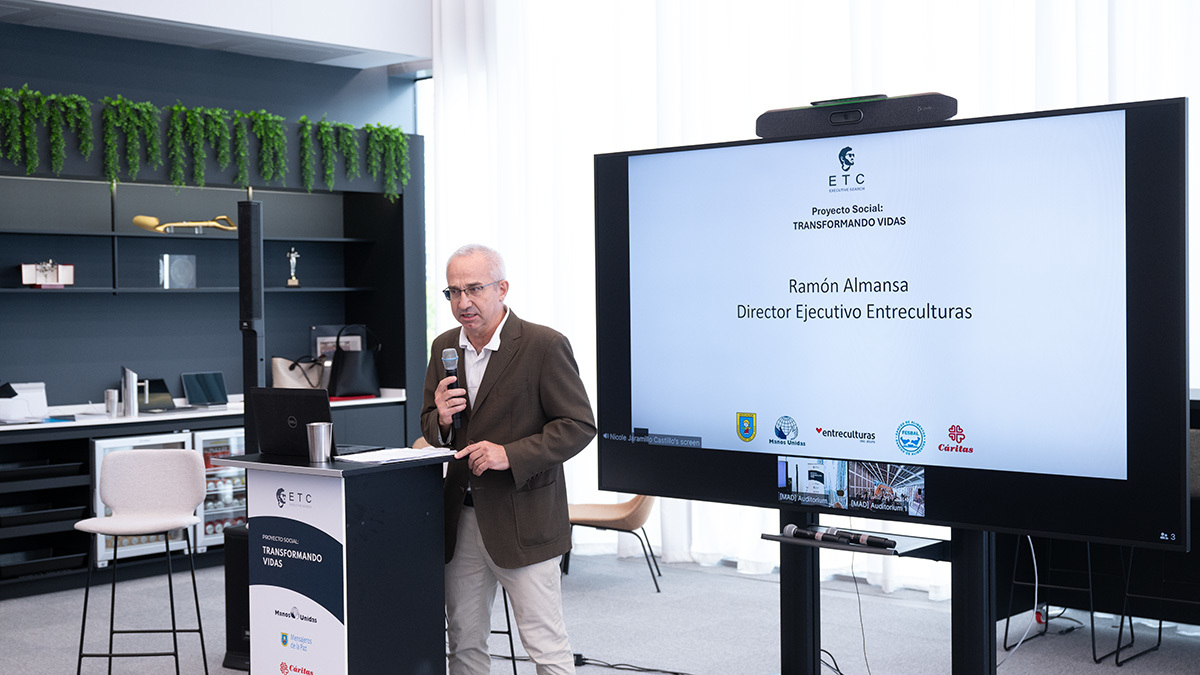
The importance of food bank activity in the fight against hunger was also discussed at the event. Francisco Greciano, Director General of the Spanish Federation of Food Banks (FESBAL), explained the work of his organisation and stressed that they serve up to 116 kilos of food per person served per year.
Francisco Greciano stressed the need for cooperation between NGOs, companies and civil society to fight hunger and poverty: ‘We food banks believe in alliances between social organisations, companies and civil society’.
Francisco Greciano pointed out that up to 3,000,000 million people cannot afford a meal with protein every two days, which is why we must continue to act against food poverty. Moreover, in Spain alone, 2 billion kilos of food are wasted every year, an amount that could be used to fight food poverty.
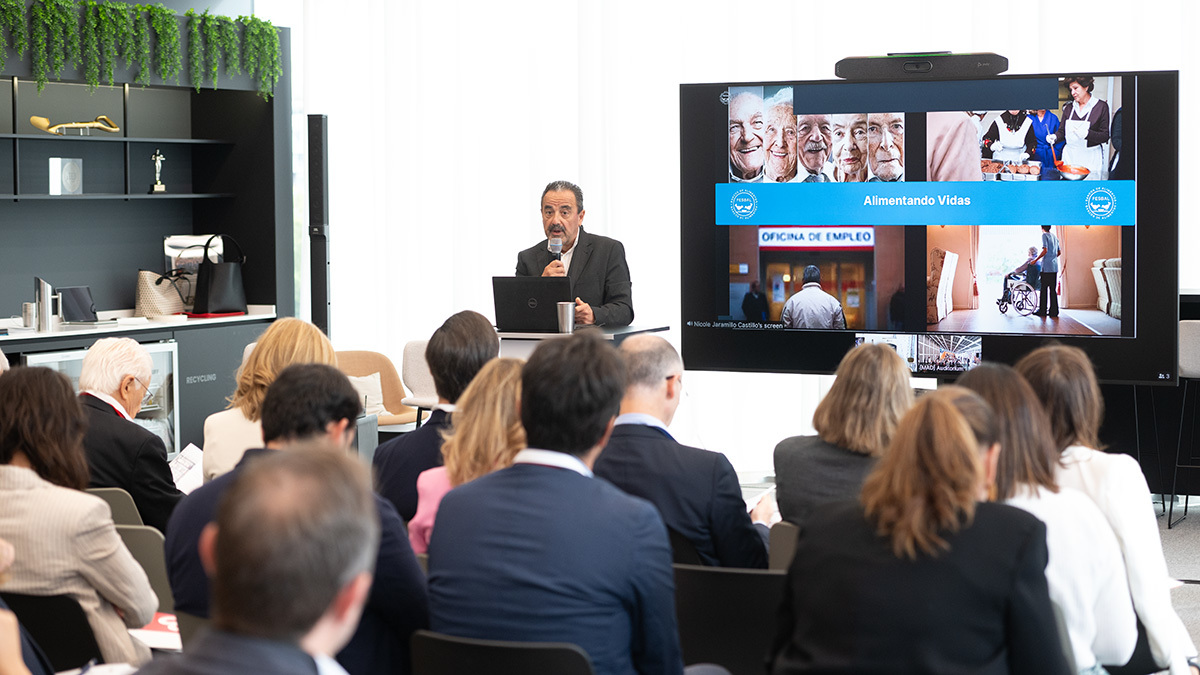
In short, Spain has a high level of per capita income, but this situation coexists with important layers of society suffering from poverty (almost 27% of the Spanish population is at risk of poverty and social exclusion), which is why the activity of these NGOs in Spain is necessary, with the invaluable support of important companies, which can provide much-needed economic aid.








